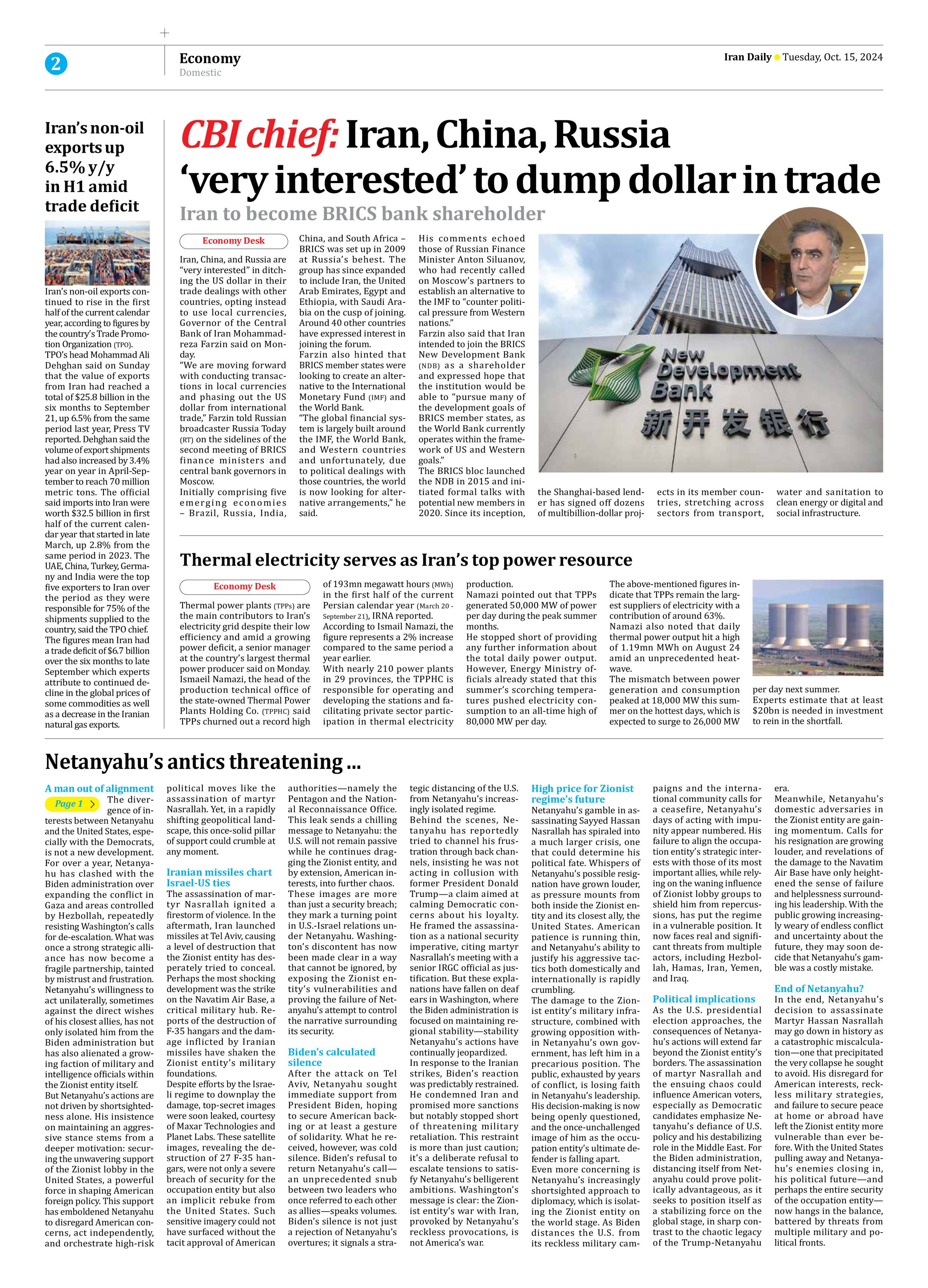
CBI chief: Iran, China, Russia ‘very interested’ to dump dollar in trade
Iran to become BRICS bank shareholder
Iran, China, and Russia are “very interested” in ditching the US dollar in their trade dealings with other countries, opting instead to use local currencies, Governor of the Central Bank of Iran Mohammadreza Farzin said on Monday.
“We are moving forward with conducting transactions in local currencies and phasing out the US dollar from international trade,” Farzin told Russian broadcaster Russia Today (RT) on the sidelines of the second meeting of BRICS finance ministers and central bank governors in Moscow.
Initially comprising five emerging economies – Brazil, Russia, India, China, and South Africa – BRICS was set up in 2009 at Russia’s behest. The group has since expanded to include Iran, the United Arab Emirates, Egypt and Ethiopia, with Saudi Arabia on the cusp of joining. Around 40 other countries have expressed interest in joining the forum.
Farzin also hinted that BRICS member states were looking to create an alternative to the International Monetary Fund (IMF) and the World Bank.
“The global financial system is largely built around the IMF, the World Bank, and Western countries and unfortunately, due to political dealings with those countries, the world is now looking for alternative arrangements,” he said.
His comments echoed those of Russian Finance Minister Anton Siluanov, who had recently called on Moscow’s partners to establish an alternative to the IMF to “counter political pressure from Western nations.”
Farzin also said that Iran intended to join the BRICS New Development Bank (NDB) as a shareholder and expressed hope that the institution would be able to “pursue many of the development goals of BRICS member states, as the World Bank currently operates within the framework of US and Western goals.”
The BRICS bloc launched the NDB in 2015 and initiated formal talks with potential new members in 2020. Since its inception, the Shanghai-based lender has signed off dozens of multibillion-dollar projects in its member countries, stretching across sectors from transport, water and sanitation to clean energy or digital and social infrastructure.







